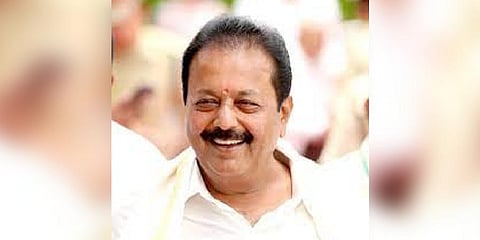

BENGALURU: Agriculture Minister N Chaluvarayaswamy on Thursday said that a Cabinet sub-committee meeting on drought-related issues on September 4 is likely to take a decision on declaring certain taluks in Karnataka drought-hit. The meeting will be chaired by Revenue Minister Krishna Byre Gowda.
“In 125 taluks, the soil has lost moisture. A crop-damage survey was carried out and the report was submitted on August 31. We have to now see how many taluks can be declared drought-hit. As of now, there is no drinking water crisis,” he said during an interaction with journalists at the Press Club in Bengaluru. He said the norms laid down by the Centre and State will be considered before declaring the taluks drought-hit.
He said over 16 lakh farmers have been enrolled on crop insurance schemes and as a preventive measure, the first instalment will be released to 35,000 farmers.“But if a taluk is declared drought-hit, then all the farmers there will get the compensation,” he explained. Farmers have paid only 2% of the premium estimated at Rs 50 crore against the crop insurance as the rest of it (to the tune of 2,500 crore) was paid by the Union and State governments, he added.
He said action has been taken against those selling seeds and fertilizers of poor quality to farmers. “There is no shortage of fertilisers and seeds in Karnataka,” he added.
On the field trial of GM mustard, he clarified that Karnataka will not go for it. “Trial of nano urea and nano DAP fertilizer is underway and its impact will be known only after two crops are raised,” he said.
Chaluvarayaswamy asserted that the implementation of the guarantee schemes by the Congress government has nothing to do with a shortage of agriculture labourers. “No study has proved this. There might be some cases, but it is negligible. Do you think certain sections of people should permanently work in the fields as labourers?” he said.